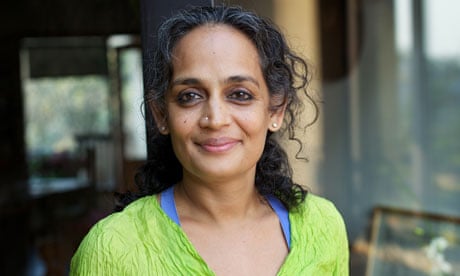Arundhati Roy was in her 30s when she wrote The God of Small Things, winning the Booker prize, and finding the money, fame and adulation that comes with an international bestseller that has been translated into more than 40 languages. Describing herself as a "natural born feminist", perhaps it's not surprising that Roy decided to tear up the rule book when she found herself cast as the "fairy princess of the rising Indian middle-class".
She has not published a second novel. Instead, for the past 14 years she has shone the spotlight on the dark side of the subcontinent; its millions of poor, dispossessed and abused citizens, and the destruction that big corporations and vested interests are wreaking on the environment. Roy, 49, has become one of the country's most important polemicists, taking on the Indian government over a dam project that threatened millions of homes and livelihoods, conflict and human rights abuses in Kashmir, as well as land-grabbing from tribal communities.
"They have tried putting me in prison and they have tried giving me awards," she says, but neither has silenced her. She dismisses the example of Gandhi's non-violence as impractical in the face of impervious capitalist forces. "If you live in a tribal village in the heart of a forest and 800 paramilitaries surround it and start to burn it and rape the women, what Gandhian action would you prescribe? Gandhian politics . . . needs an audience. They don't have an audience."
Her free-spirited, strong-minded approach was honed in a tumultuous childhood. Her mother ran away from a violent father, into the arms of a drunken husband. After the birth of two children, Mary Roy left him to start a private school on her own. At 17 Arundhati escaped to the city and sold empty beer bottles before training to be an architect. She then acted in a film and wrote screenplays.
She is finally working on her second novel. Her critics complain that her outspokenness serves only to turn her into a talking point and fails to highlight the issues she is passionate about, while others decry her bleak focus on India's problems. But as one reader wrote: "She inspires me to stand up for understanding and cooperation, rather than greed and exploitation."
